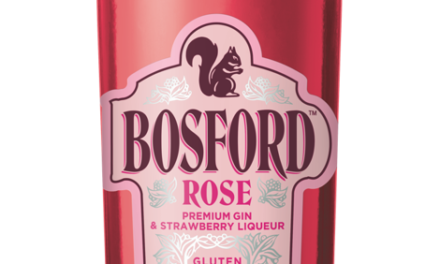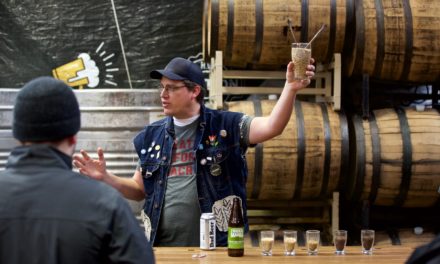What beverage producers should know—and do now—to navigate federal and state COVID-19 relief packages, from a human resources and legal perspective, continues to unfold. However, the most intense early focus has been on programs designed to keep employees on the payroll.
“The main toggle factor, in my opinion, is the availability of funds,” says Todd Friedman, a partner in the Portland, Ore., offices of Stoel Rives LLP. “To the extent that people are at a disadvantage, it’s not about the rules. It’s about not having the knowledge or the banking relationship.
“There isn’t a program limitation. But if you’re a bank and, all of a sudden, you have people flooding your phone lines to apply, you’re going to take care of your customers first,” he says.
Loans and Grants Support Employee Retention
Many CARES loans involve no underwriting, Friedman explains, which makes them akin to grants. There’s no collateral being pledged, nor is any financial information required. Friedman and Kristin Russell, one of the firm’s corporate attorneys leading its COVID-19 response efforts, say new information, including new guidance on the rules relative to eligibility, is “being released on a near-daily basis.”

““Approximately $9.5 billion of funding in the CARES Act has been allocated to the U.S. Department of Agriculture (USDA). It’s worth watching, since beverage producers, or their suppliers, may be eligible for some of these programs.” —Todd Friedman, Stoel Rives LLP
Businesses that apply need to keep immaculate records to track their spending, and also “track the basis on which assumptions included in the application were made,” says Russell. This way, if there are changes to the relief program, these records can be used “to demonstrate the borrower’s good faith compliance with the rules available at the time the application was made,” as well as help with any future audits.
Loan Combinations Possible
Much of the available relief has been made through the CARES Act, which expanded the Small Business Administration’s existing Economic Injury Disaster Loan Program (EID), for example, and also added a grant program.
In most states, EID applications can be filed until December 16, 2020. A business may apply for both a PPP loan and an EID, “so long as the funds from each loan are not used for the same expenses. What’s more, an EID loan can be refinanced into a PPP loan and, once refinanced, [be] eligible for forgiveness, assuming money is available in the PPP,” says Russell.
The Main Street Lending Program enhances “support for small and mid-sized businesses that were in good financial standing before the crisis” through four-year loans to companies that either employ up to 10,000 workers or that have annual revenues of less than $2.5 billion. Any principal and interest payments will be deferred for one year. Russell says businesses applying for these types of loans have to “commit to make reasonable efforts to maintain payroll and retain workers.” Businesses participating in the PPP may also take out Main Street loans.
Beverage Supply Chain Support
“Approximately $9.5 billion of funding in the CARES Act has been allocated to the U.S. Department of Agriculture (USDA) specifically for producers of specialty crops; producers who supply local food systems, farmers’ markets, restaurants, and schools; and livestock producers and dairy farmers,” says Friedman. “It’s worth watching, since beverage producers, or their suppliers, may be eligible for some of these programs.”

“Businesses applying for these types of loans have to commit to make reasonable efforts to maintain payroll and retain workers.” —Kristin Russell, Stoel Rives LLP
Relief is conditional. Those applying need to affirm that their business has been damaged by substantial economic uncertainty. If, says Friedman, someone can make this statement truthfully, they can apply for aid. He adds that this may be key “the higher up you go in the supply chain,” where economic issues may be long-term rather than immediate. A hop grower, for example, may have crops under contract for this season, but the question is, will that other party be able to pay? At present, this is a valid question. No one knows.
Also within The CARES Act is an exemption from the excise tax imposed on distilled spirits “removed during 2020 that are used in or contained in hand sanitizer consistent with Food and Drug Administration guidance related to COVID-19.”
It’s also likely that additional federal funding will be available “and additional relief will be provided for mid-sized businesses that don’t fit within the SBA guidelines,” Friedman predicts.
There are also state and local programs. However, Friedman says, these are smaller “and they’ve generally been overwhelmed with applicants.”
Friedman says that, while he initially fielded calls from businesses about how to navigate newly liberalized regulations that allowed bottled wine or even readymade cocktail deliveries, roughly one-third of his time is now spent on calls related to the PPP.
Operations Will “Look Different”
Friedman says it’s going to be difficult for organizations up and down the beverage supply chain. He expects, for example, hospitality businesses and on-premise beverage sales to be “impacted for some period of time.” People are still drinking wine and spirits, but “the supply chain split looks wholly different.”
Producers that are focused on restaurant and on-premise sales may also “look different” in three months when compared to a business that is focused on (or can readily pivot to) off-premise sales. Producers and distributors with significant sales from sporting events and concerts will be hard hit, as well.
Distributors are also risk adverse in this current environment. Smaller producers, says Friedman, “aren’t going to get attention from a distributor in this type of environment.” Distributors are conserving cash—if it has cash available—and not placing new orders.
“Also, this is a fast moving situation. There are a lot of unknowns and unanswered questions, and there will probably be new programs with new rules, too. So ‘hire a good attorney’ is good advice,” he counsels.
Both Friedman and Russell caution relief program applicants to “file applications truthfully and in good faith,” noting that there are “real legal and reputational risks for businesses that cut corners or commit fraud.”
“It’s going to be tough on everybody,” Friedman adds. “It’s hard to believe things will just snap back.”











